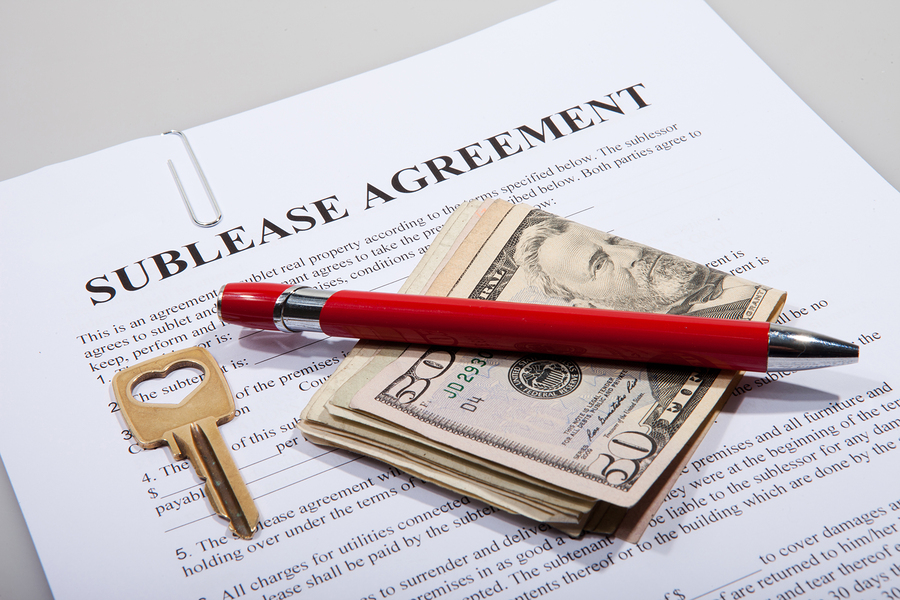What are the considerations one should take into account when drafting or negotiating a commercial lease?

Is a Homeowner or Condominium Association’s Rule to arbitrarily decline a tenant valid?
February 1, 2019
What are general strategies for minimizing costs when dealing with conflicts with other parties?
February 1, 2019What are the considerations one should take into account when drafting or negotiating a commercial lease?
In drafting or negotiating a commercial lease, landlords and tenants have significantly different interests which must be protected. Both parties want to be sure to be represented by knowledgeable and experienced counsel so that the terms of the contract are clear and unambiguous and so that they reduce the risk of a future dispute. It is much more cost effective to utilize counsel at the outset than to be forced to obtain an attorney to litigate a future dispute.
In drafting a commercial lease, a landlord should obtain counsel to assist him or her in drafting a lease that complies with Florida law. If you are a landlord, there are four main conditions that a landlord should include in the lease:
- Use restrictions: Use restrictions limit how a tenant can utilize the property. For instance, if you are leasing multiple units on one property, you may want to restrict the type of business a future tenant can engage in. This can keep your new tenant from engaging in a business that directly competes with an already existing business, which may threaten your relationship with your pre-existing tenant. In addition, you may want to keep certain businesses out of your building entirely, as they reflect poorly on the type of property you are trying to promote or don’t fit well within your general business plan for your property. The landlord has the right to craft a use restriction as broadly or narrowly as he or she deems necessary.
- Expense allocations: Running and maintaining a commercial property can be expensive. Landlords want to make sure that their expense obligations are clear in the commercial lease. This includes not only routine expenses like water and electricity but also unforeseeable expenses, including certain repairs. Landlords can greatly reduce future headaches by making it clear at the outset what party is responsible for a given expense.
- Indemnification: An indemnification clause is one of the most important clauses a landlord can include in a commercial lease. Since a tenant of a commercial lease has both possession and control of the premises owned by the landlord, a landlord will generally require the tenant to indemnify the landlord in connection with any incident or event occurring on the premises or from the tenant’s occupancy or use of the premises. It is important to note that an indemnity provision is a contractual obligation of the tenant to pay for something (for example, claims, damages, liabilities or expenses) and it is separate and severable from other contractual obligations under the lease. As a result, an indemnity obligation by the tenant can be of great benefit to the landlord since the landlord does not have to prove that its damages or expenses flowed directly from the tenant’s default under the lease in order to win in court.
- Remedies: When a tenant breaches a commercial lease, a landlord almost always sustains damages. Consequently, landlords should include clauses in their leases that lay out specific remedies. For example, what happens if a tenant fails to pay rent? Landlords should attempt to provide remedies for as many foreseeable breaches as they can.
Landlords and tenants should both be represented by competent counsel when negotiating the terms of a commercial lease. Although the landlord drafts the initial version of the contract, there are a number of clauses to be negotiated and both parties need to ensure that their rights are properly protected. Tenants in particular need to pay special attention to the details of the lease since landlords are in the business of commercial leasing and therefore have more experience negotiating leases. Tenants should pay particular attention in negotiating the following provisions:
- Rent: The most basic question when dealing with negotiations over rent involves determining what “rent” includes. For instance, are utilities included? What about property taxes? Is the tenant’s rent obligation contingent upon its gross receipts (this is often common in “percentage leases” for commercial spaces?)
- Common Area Maintenance (CAM) and Pass-Through Expenses: Along with rent, CAM and other pass-through expense will constitute a substantial portion of most tenants’ monthly or annual expenses. These expenses can include the cost of ordinary wear and tear as well as other discretionary expenses. Potential tenants must make sure these expenses are clearly and fully spelled out in the lease so they can negotiate for revised terms to cap vague and potentially open-ended obligations.
- Initial Term: The most important element in negotiating the initial term is determining when that initial term begins. For instance, if you are renting a white box for an extensive buildout, do your rent and expense obligations begin in full when you sign the lease? Alternatively, will you receive an improvement allowance and a reasonable timeframe to complete your buildout prior to incurring rent obligations?
- Renewal: Even before they enter into a commercial lease, potential tenants should consider their alternatives for when the initial term expires. While commercial leases will often include renewal “options,” in many cases, these options are subject to numerous conditions that give the landlord substantial control over whether or not to renew. Prospective tenants should also consider the potential growth of their business in deciding whether to negotiate for a short term or a longer-term lease.
- Use of the Premises: Tenants must also carefully examine the “use” clause of the lease. Such provisions can create issues for tenants whose operations are not clearly defined and can also unduly restrict tenant’s use of the premises.
By retaining competent legal counsel for the drafting and negotiation of the lease, tenants and landlords may potentially save countless hours and exorbitant costs involved with litigating the language or intent of a poorly drafted and unclear lease. Among other things, attorneys can perform the following functions: (i) serve as a spokesperson for their client; (ii) draft letters of intent; and (iii) make sure their clients’ legal interests are best protected in the leasing of a commercial space, including negotiations over the build-out of a new space or a major renovation of an existing space. Even if you are a client with a tight budget, hiring counsel can be a worthwhile investment by leading to years of peaceful co-existence in your business space and money-saving terms in the lease.




